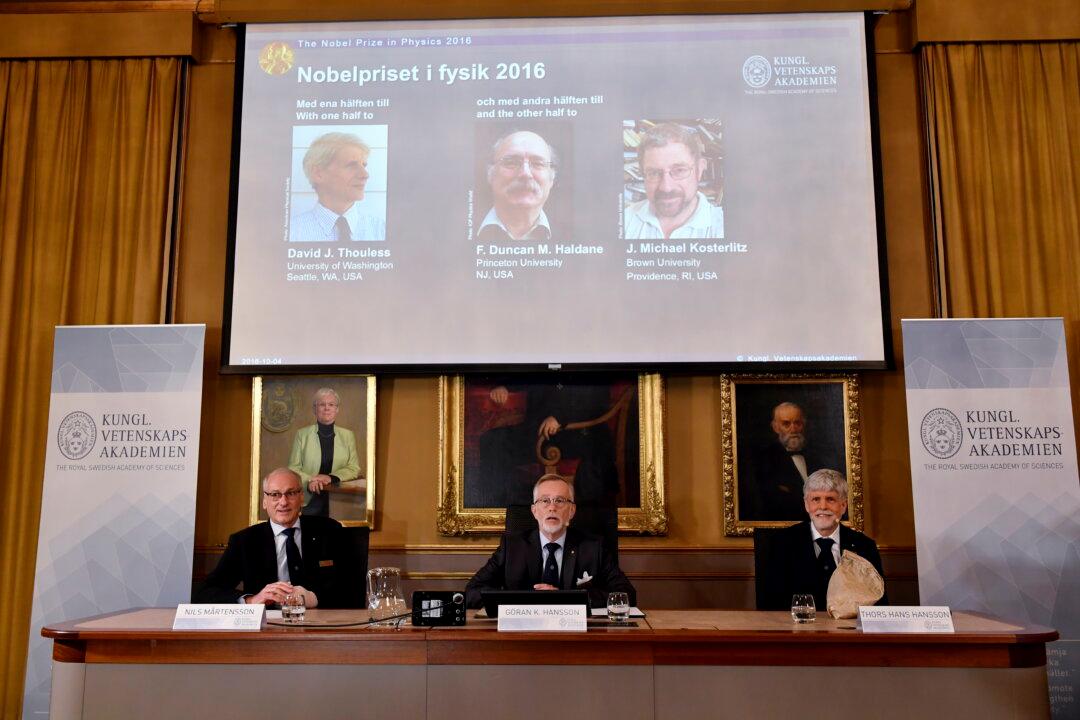STOCKHOLM—British-born scientists David Thouless, Duncan Haldane and Michael Kosterlitz were awarded this year’s Nobel Prize in physics on Tuesday for revealing the secrets of exotic matter such as superconductors, materials that conduct electricity with no loss to resistance.
The Royal Swedish Academy of Sciences cited the three for “theoretical discoveries of topological phase transitions and topological phases of matter.”
The academy said their work in the 1970s and ‘80s opened the door to a previously unknown world where matter takes unusual states or phases.
“Their discoveries have brought about breakthroughs in the theoretical understanding of matter’s mysteries and created new perspectives on the development of innovative materials,” they said.
Nobel judges often award discoveries made decades ago, to make sure they withstand the test of time.
Thouless, 82, is a professor emeritus at the University of Washington. Haldane, 65, is a physics professor at Princeton University in New Jersey. Kosterlitz, 73, is a physics professor at Brown University in Providence, Rhode Island.
Speaking by a phone link to a news conference in Stockholm, Haldane said he was “very surprised and very gratified” by the award.
This year’s Nobel Prize announcements started Monday with the medicine award going to Japanese biologist Yoshinori Ohsumi for discoveries on autophagy, the process by which a cell breaks down and recycles content.
The chemistry prize will be announced on Wednesday and the Nobel Peace Prize on Friday. The economics and literature awards will be announced next week.
Each prize has a purse of 8 million kronor ($930,000). The winners also collect a medal and a diploma at the award ceremonies on Dec. 10, the anniversary of prize founder Alfred Nobel’s death in 1896.





